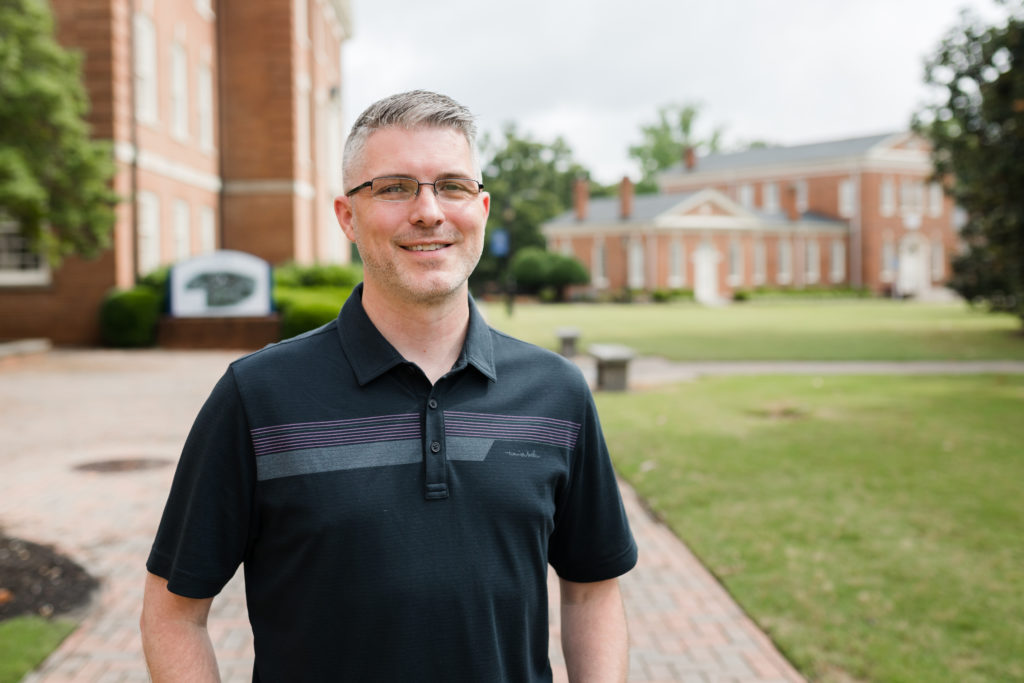Pastoring in the Intellectual Capital of America: A Q&A with Chris James
Lauren Pratt | December 14, 2021

In 2019, the Barna Group found that the area from Boston, Massachusetts to Manchester, New Hampshire was the fifth most post-Christian area in the United States. Situated between these two cities is Lowell, Massachusetts, a city filled with art, culture, and history.
It’s known as the birthplace of the American Industrial Revolution and is home to UMass Lowell, a school with over 18,000 students. In an area that is largely unchurched, ThM student and Pastor of Mill City Church, Chris James is seeking to lead students and families to orient their lives around making disciples in New England and beyond. Whether it’s an unchurched college student, someone involved in witchcraft, or a person steeped in Catholicism, James has witnessed the transforming power of the gospel in a region that is less than five percent evangelical.
James, who began his ThM in 2021, sat down to discuss his ministry in Lowell and why he believes his time at Southeastern Baptist Theological Seminary is giving him the tools necessary for more effective ministry. Check out the conversation below.
 Why did you choose Southeastern?
Why did you choose Southeastern?
Southeastern has a very reputable and influential faculty. What I’ve discovered is just how deeply personal they are as well. The institution itself is biblically faithful and gospel focused. And the education here is both academically rigorous and intentionally missional. That missional component, as someone who’s been a missionary for almost two decades, was very important. In the northeast, there is a lot of skepticism towards institutions. The fact that we are raising up leaders and disciples at Mill City Church who also find Southeastern’s vision as persuasive and compelling to attend as I do speaks a lot about the institution.
Mill City Church has gained a reputation for being a church focused on missions and disciple making. How can churches build that culture into the DNA of their congregation?
I think the short answer is just it has to thread through every single thing you do. It can’t just be a missions’ sermon once a year. What we preach as normal is that you come to faith in Jesus and everything that you receive, everything you learn, you pass on to other people. We write disciple-making into the DNA of everything we do.
What have you enjoyed about studying at Southeastern?
As someone who has been working in the northeast for two decades, the coursework, the lectures, the worldview, and the approach the professors take fits my context. That’s been very affirming. My favorite seminar was on gender and sexuality. It was presented in a way that was biblical, philosophical, and apologetic. I took so much from that seminar back home with me because whatever conversations we’re having around marriage and gender and sexuality in North America, New England is the seedbed for those debates. Experiencing that seminar and its missional and apologetic nature, as well as the academically rigorous and biblically faithful nature of that seminar really affirmed that this is where I need to be.
Tell me a little about the population of Mill City Church and how it started?
Our church was birthed out of our campus ministry at UMass Lowell. What that’s meant is an overwhelming majority of our membership for the last 13 years has been from the campus. On any given semester that means that probably about 30 percent of our attendance is college students, another third or so are alums who have come out of our ministry on campus, and another third or so are people who have come in from the community. The benefits are there is such zeal among young adults, let’s conquer the world type mentality, which is fantastic. They’re ready to go, and you can easily mobilize them. Another beauty of our congregation is the bridging of generations. We intentionally mix all of our community groups to include singles and marrieds, those with kids and those without kids, and both the young and the old. This really helps reinforce the nature of the church as a family.
For pastors, why is it important to continually have the mindset to keep learning and growing?
If you’re not continually learning, then you’re not really growing. The world is constantly changing, and as a missionary, I don’t want to be on the backside of those changes. I never want to stop learning and growing, and I don’t think you have to do that through a degree, but I think a degree is a really good tool for that.
How can we pray for Mill City Church?
- Pray for more of our members to intentionally make disciples in their relational spheres.
- Ask God to send out more laborers from our church to New England, North America, and the globe.
*This article was edited for length and clarity.